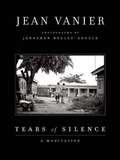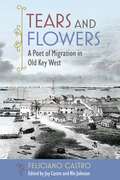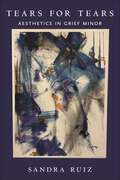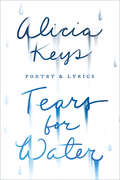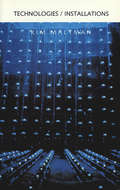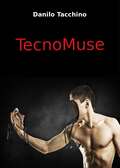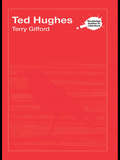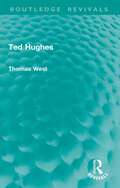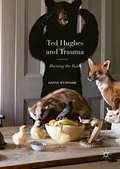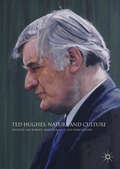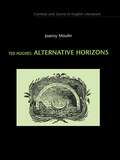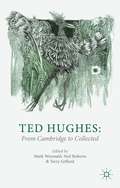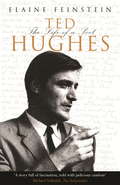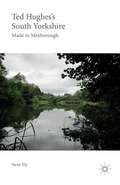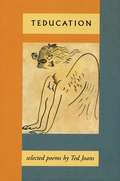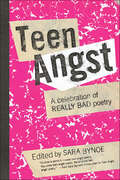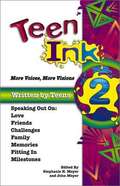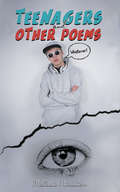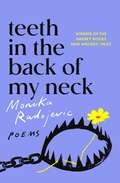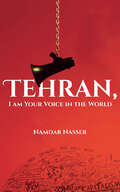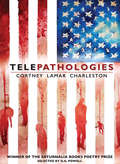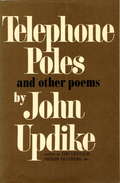- Table View
- List View
Tears Of Silence
by Jean Vanier Jonathan Boulet-Groulx Parker PalmerAcclaimed as a man ?who inspires the world” (Maclean's) and a ?nation builder” (Globe and Mail), Jean Vanier has made a difference in the lives of countless people ? including those with disabilities and the many people who have been moved by his life's work. Rereleased to commemorate the 50th anniversary of L'Arche Internationale, an international network of communities for people with developmental disabilities, Tears of Silence is an inspiring book of poems on the topics of alienation and belonging, featuring intimate, never-before-published black and white photographs from L'Arche communities around the world. This edition includes a new introduction by Jean Vanier and a foreword by author and education activist Parker Palmer.
Tears and Flowers: A Poet of Migration in Old Key West
by Feliciano CastroA bilingual edition of poetry that provides a unique window into Cuban émigré life A rare glimpse into the history of the Cuban community in Key West in the early twentieth century, this book makes the poetry of Feliciano Castro available in English for the first time. A Galician Cuban who lived for decades in the southernmost city of the United States, Castro worked as a lector reading to cigar factory employees, a newspaper editor, a printer, and a writer. He published Lágrimas y flores, a collection of his poetry, in 1918. Translated here by Rhi Johnson, Castro’s poems provide a window into an overlooked literary culture.Johnson and Joy Castro open this bilingual edition with an introduction detailing the writer’s biography, literary context, and cultural milieu. Tears and Flowers highlights questions of national identity, migration, belonging, and courtship in Cuban émigré society, connects Florida to the Spanish-speaking communities of the Caribbean and Spain, and recovers the literary archive of a rich moment in US and Latinx history for a contemporary audience. Publication of this work made possible by a Sustaining the Humanities through the American Rescue Plan grant from the National Endowment for the Humanities.
Tears for Tears: Aesthetics in Grief Minor (Minoritarian Aesthetics)
by Sandra RuizHow minoritarian artists grapple with both personal and collective griefTears for Tears documents moments of tension, negotiation, transformation, and incommensurability between singular loss and mass death through the work of contemporary minoritarian artists. These artists interrogate the cultural, social, and political enmeshment of death by questioning the interior and exterior conditions of loss Charting communal, singular, ongoing, and impending loss due to state-sanctioned violence, colonial racial capitalism, natural disaster, and social and personal circumstances, Sandra Ruiz underscores the affective entanglements across death that reshape the topography of grief into portals of possibility.Drawing from original interviews, familial artifacts, images, and personal archival notes of artists—much of which have never been written about before—the project centers the minoritarian artist as living with and against death in everyday life and art practice. In doing so, the manuscript stages an archival and ideological intervention into the life of grief for minoritarian subjects and artists.Moving across performance and video art, sculpture, dance, music, theatre, and poetry, Ruiz highlights the relationship between everyday life and staged events as a critical lens to rethink structures of colonial and imperial spatial temporalities of grief. Offering invaluable insights into the production of these works and performances, Ruiz reveals how these artists move across social, corporeal, and psychic constructions of sorrow in their art practices—often working from parental loss into the domain of communal death—and see grieving, however painful, as an act of empowerment, transformation, growth, and communal building.
Tears for Water: Poetry & Lyrics
by Alicia KeysFrom acclaimed musician Alicia Keys comes a revealing songbook of collected poems and lyrics that document her growth as a person, a woman, and an artist.&“All my life, I&’ve written these words with no thought or intention of sharing them. Not even with my confidants. These are my most delicate thoughts. The ones that I wrote down just so I could understand what in the world these things I was thinking meant...&” When she burst onto the music scene with her multi-million bestselling, Grammy® Award-winning first album, Songs in A Minor, Alicia Keys became a superstar. Two decades later, her career has expanded into producing, acting, and passionate activism—winning her worldwide acclaim, numerous awards, and a spot on Time&’s list of &“The 100 Most Influential People.&”Though Alicia has been very vocal through her career, there were always &“delicate thoughts&” that she never before imagined she&’d share with anyone else—until now. In Tears for Water, Alicia Keys opens the journals and notebooks that she has kept throughout her life and reveals her heart to her fans in return for all the love they have shown to her and her music.Hello morningnow I see youcause I am awakeWhat was once so sweet and securehas turned out to be fakeGirl, you can&’t be scaredgotta stand up tall and let &’em see what shines in youPush aside the partlying in your heartlike the ocean is deep, dark and blue—from Golden Child
Technologies/Installations
by Kim MaltmanThis extraordinary sequence of prose and free verse poems explores the postures, styles, and rhetorics of our culture and its history -- not with the predictable aim of criticism and rejection, or the fashionable aim of recombinant word-play, but in the service of an unflinching, and thereby real, passion. This is humane vision of great breadth, depth, and particularity.
Tecnomuse: Technologie et poésie : un mariage incroyablement mathématique...
by Danilo TacchinoTecnomuse de Danilo Tacchino Technologie et poésie : un mariage incroyablement mathématique... Tecnomuse L'expérience des jeunes est renforcée par le moment du développement technologique dans lequel les technologies électroniques et de l'information se développent de manière exponentielle et la société mondiale s'interroge sur le développement en cours et où il peut conduire l'ensemble de la société humaine. Le nouveau défi de l'homme vers de nouveaux objectifs de connaissance et de bien-être pour l'ensemble de l'humanité est grand et plein d'illusions. De nombreuses questions, doutes et sentiments liés à ce développement de la vie sociale sont le point de départ d'un discours poétique qu'il faut affronter et sur lequel il faut se confronter.
Tecnomuse: Technologie und Poesie: eine unglaublich mathematische Ehe ...
by Danilo TacchinoTecnomuse von Danilo Tacchino Technologie und Poesie: eine unglaublich mathematische Ehe ... Tecnomuse Die Jugenderfahrung wird durch den Moment der technologischen Entwicklung verbessert, in dem die Elektronik- und Informationstechnologie exponentiell wächst und sich die Weltgesellschaft über die Entwicklung wundert, die stattfindet und wohin sie die gesamte menschliche Gesellschaft führen kann. Die neue Herausforderung des Menschen hin zu neuen Erkenntnis- und Wohlstandszielen für die gesamte Menschheit ist groß und voller Illusionen. Viele Fragen, Zweifel und Gefühle im Zusammenhang mit dieser Entwicklung des gesellschaftlichen Lebens sind Ausgangspunkt für einen poetischen Diskurs, dem man sich stellen muss und dem man sich konfrontieren muss.
Tecnomuse: Technology and Poetry: an incredibly mathematical marriage ...
by Danilo TacchinoTecnomuse by Danilo Tacchino Technology and Poetry: an incredibly mathematical marriage ... Tecnomuse The youth experience is enhanced by the moment of technological development in which electronic and information technology is growing exponentially and world society is wondering about the development that is taking place and where it can lead the entire human society. The new challenge of man towards new goals of knowledge and well-being for the whole of humanity is great and full of illusions. Many questions, doubts and feelings related to this development of social life are the starting point for a poetic discourse that must be faced and on which one must confront.
Tecnomuse: Tecnología y poesía: un matrimonio increíblemente matemático ...
by Danilo TacchinoTecnomuse de Danilo Tacchino Tecnología y poesía: un matrimonio increíblemente matemático ... Tecnomuse La experiencia de los jóvenes se ve reforzada por el momento del desarrollo tecnológico en el que la tecnología electrónica y de la información está creciendo exponencialmente y la sociedad mundial se pregunta sobre el desarrollo que está teniendo lugar y hacia dónde puede conducir a toda la sociedad humana. El nuevo desafío del hombre hacia nuevas metas de conocimiento y bienestar para toda la humanidad es grande y está lleno de ilusiones. Numerosas preguntas, dudas y sentimientos relacionados con este desarrollo de la vida social son el punto de partida de un discurso poético que hay que afrontar y sobre el que hay que confrontar.
Ted Hughes (Routledge Guides to Literature)
by Terry GiffordFor the first time, one volume surveys the life, works and critical reputation of one of the most significant British writers of the twentieth-century: Ted Hughes. This accessible guide to Hughes’ writing provides a rich exploration of the complete range of his works. In this volume, Terry Gifford: offers clear and detailed discussions of Hughes’ poetry, stories, plays, translations, essays and letters includes new biographical information, and previously unpublished archive material, especially on Hughes’ environmentalism provides a comprehensive account of Hughes’ critical reception, separated into the major themes that have interested readers and critics offers useful suggestions for further reading, and incorporates helpful cross-references between sections of the guide. Part of the Routledge Guides to Literature series, Ted Hughes presents an accessible, fresh, and fascinating introduction to a major British writer whose work continues to be of crucial importance today.
Ted Hughes (Routledge Revivals)
by Thomas WestOriginally published in 1985, this study provides a clear and intelligent introduction to the work of the former Poet Laureate, Ted Hughes. The author presents the main works in a broadly chronological order and brings together the most interesting of Hughes’ own critical remarks from interviews, recordings, letters and articles. Throughout the book West emphasizes the drama and the gestures behind the ‘verbal surface’ of Hughes’ work and at the same time raises questions of value not just for Hughes’ work but for all poetry, such as, what is myth and what is the purpose of poetry? Many well-known poems are used to illustrate his argument and a small number are examined in depth, making this an indispensable guide to Ted Hughes’ work.
Ted Hughes and Trauma: Burning the Foxes
by Danny O'ConnorThis book is a radical re-appraisal of the poetry of Ted Hughes, placing him in the context of continental theorists such as Jacques Lacan, Jacques Derrida and Slavoj Zizek to address the traumas of his work. As an undergraduate, Hughes was visited in his sleep by a burnt fox/man who left a bloody handprint on his essay, warning him of the dangers of literary criticism. Hereafter, criticism became ‘burning the foxes’. This book offers a defence of literary criticism, drawing Hughes’ poetry and prose into the network of theoretical work he dismissed as ‘the tyrant’s whisper’ by demonstrating a shared concern with trauma. Covering a wide range of Hughes’ work, it explores the various traumas that define his writing. Whether it is comparing his idea of man as split from nature with that of Jacques Lacan, considering his challenging relationship with language in light of Roland Barthes and Jacques Derrida, seeing him in the art gallery and at the movies with Gilles Deleuze, or considering his troubled relationship with femininity in regard to Teresa Brennan and Slavoj Žižek, Burning the Foxes offers a fresh look at a familiar poet.
Ted Hughes, Nature and Culture
by Mark Wormald Terry Gifford Neil RobertsThe fourteen contributors to this new collection of essays begin with Ted Hughes’s proposition that ‘every child is nature’s chance to correct culture’s error.’ Established Hughes scholars alongside new voices draw on a range of approaches to explore the intricate relationships between the natural world and cultural environments — political, as well as geographical — which his work unsettles. Combining close readings of his encounters with animals and places, and explorations of the poets who influenced him, these essays reveal Ted Hughes as a writer we still urgently need. Hughes helps us manage, in his words, ‘the powers of the inner world and the stubborn conditions of the other world, under which ordinary men and women have to live’.
Ted Hughes: Alternative Horizons
by Joanny MoulinThis is the first collection of essays to be published since the poet's death. Continuing a tradition of more than thirty years of Ted Hughes studies, it gathers contributions by most of the major international Hughes scholars, voicing their critical preoccupations at the turn of the century.Over the years, academic criticism on the poetry of Ted Hughes has established some well-trodden paths, which this collection still strongly reflects, however, the productions of the latter Hughes, in poetry as well as in criticism, demand a revisiting of the critical discourse on his work. The biographical dimension, for instance, has gradually gathered momentum, and it is no longer possible to study the work of Ted Hughes without due reference to the life and work of Sylvia Plath. This book is, nonetheless, also motivated by the wish to bring some fresh blood to the Hughes studies by politely rocking the boat of a rather comfortably established critical reception that has prided itself on being the mouthpiece of the poet's own ideological discourse. For this reason, some of the chapters in this collection belong to a continental European tradition that is resolutely foreign to the former partisanships. For all that, Ted Hughes: Alternative Horizons suggests that steering clear of the polemical ruts dug by fans and detractors alike can only benefit the future of scholarly studies devoted to a great poet.
Ted Hughes: From Cambridge to Collected
by Mark Wormald Terry Gifford Neil RobertsThis book offers new insights into neglected but essential aspects of the work of one of the major twentieth-century poets - Ted Hughes. New essays by his friends and fellow poets Seamus Heaney and Simon Armitage lead a collection of largely new voices in Hughes studies offering fresh readings and newly available archival research. Beyond the poetry and stories, these contributors draw upon recordings, notebooks, letters, writing for children, prose essays and translations. Several contributors have carried out new interviews and correspondence for this book. For the first time, this book challenges established views about Hughes's speaking voice, poetic rhythms, study at Cambridge, influence of other poets, engagement with Christianity, farming, fishing and healing. Close readings of popular texts are accompanied by new arguments and contexts that show the importance of works hitherto overlooked.
Ted Hughes: The Life of a Poet
by Elaine FeinsteinTed Hughes is one of the greatest English poets of this century, yet his life was dogged by tragedy and controversy. His marriage to the American poet Sylvia Plath marked his whole life and he never entirely recovered from her suicide in 1963, though he chose to remain silent on the subject for more than 30 years. Many people, including his friend Al Alvarez, have held Hughes's adultery responsible for Plath's death. Elaine Feinstein first met Hughes in 1969, and she was a good friend of his and his sister Olwyn's, both of whom guarded the Plath estate. She knows many of the European and America poets who so influenced Hughes - Seamus Heaney, Thom Gunn, Miroslav Holub, and knows the world in which both he and Plath moved.
Ted Hughes’s South Yorkshire: Made in Mexborough
by Steve ElyTed Hughes's South Yorkshire tells the untold story of Hughes's Mexborough period (1938-1951) and demonstrates conclusively that Hughes's experiences in South Yorkshire in town and country, educationally, in literature and love were decisive in forming him as the poet of his subsequent fame.
Teducation
by Ted JoansBlack Dues! Black Blues! Black News! , Ted Joans trumpets in his tribute to Langston Hughes. What Library Journal wrote in 1969 holds true today: "This collection of his work clearly reveals the influence of Langston Hughes, his mentor and friend. Joans, however, has the harsher and more strident tone necessary to accurately reflect today's society. As he says in one poem: 'We must fall in love and glorify our beautiful black nation / We must create black images / give the world / a black education.'"One of the first black poets to become involved in surrealism and a first generation Beat, Joans is an expatriate poet whose work is enjoying renewed interest. This major collection of poems written during the past forty years is a significant contribution to American letters. Teducation is the first single-volume collection representing the life's work of Joans, a once roommate of Charlie Parker and a contemporary of Allen Ginsberg and Bob Kaufman.Energetic African American Beat poet, surrealist painter, longtime Paris-based expatriate, African traveler, jazz expert and jazz musician, the versatile 71-year old Joans (Black Pow Wow Jazz Poems) has published 35 books, but never, till now, a selected. Joans's rakish, unsatisfiable sensibility can make his work in Beat modes as technically innovative as Burroughs, as polemically exhuberant as Ginsberg and as comic as Corso. His early work, like theirs, depends heavily on surrealist modes; "The rhino roam in the bedroom/ where the lovely virgin wait/ the owl eats a Baptist bat/ adn God almighty is too late." The masterful longer "Timbuktu Tit Tat Toe" packs a few hundred years of Black America's relationship to aftica into four pages of giddy declamation. Likke Amiri Baraka (who lauds Joans's verse), Joans came to enbrace an aesthetic of people's poetry, creating exhuberant forms to meet his needs, stirring the pot with neologism and slogan, and calling on an arsenal of heroes from Malcom X to Jean-Michael Basquiat. "And Then There Were None" locates political rage in Louis Armstrong's famous grin: "you tried to turn him into your 'musical golliwog doll'/ you wanted his trumpet to blow what you said so/ you misinterpreted his wide smile." Repudiatin
Teen Angst: A Celebration of Really Bad Poetry
by Sara BynoeTeen Angst: A Celebration of Really Bad Poetry is the first, the best, and the biggest collection of teen angst poetry ever to be published. Inspired by the popularity of her interactive website, editor Sara Bynoe has compiled the definitive teen angst reader. Divided into 12 categories, including I am Alone and No One Understands My Pain and Obvious Metaphors, this book is for anyone who has ever written truly terrible, meditative, or self-indulgent poetry. Actually, this book is for anyone who survived being a teenager. All of the poets featured in this collection are now adults, living happy, angst-free lives. However, for this special book, they are willing to reveal excerpts from their old tattered notebooks or leather bound journals. Along with the poems, each poet has included a short introduction, giving background information for each work. As Sara Bynoe says, looking back on teen angst poetry brings people together in a "poetry reading meets stand-up comedy meets AA" sort of way.
Teen Ink 2: More Voices, More Visions
by Stephanie H. Meyer John MeyerA collection of stories and poems by teenage writers, arranged under the categories "Family," "Friends," "Challenges," "Love," "Imagination," "School Days," "Fitting In," "Milestones," and "Memories."
Teenagers and Other Poems
by Melissa MarsdenDo you ever feel your teenager is a different species? Do you shake your head in wonder at their music tastes and their laziness? Do they barely mutter a word to you? Do they think they know everything? Do they drive you mad? Well, you are not alone! Do you ever have to deal with your ex? Glad he is out of your life? Glad you got rid of the bastard? You are not the only one! How about getting old? Are your days of clubbing long gone? Is a late night half past eight now? Comes to us all! The poems in this book will provide you with some laughter and light relief about these subjects and more! These are poems that will resonate with many people and are not fancy or fluffy, they tell it like it is! There are some serious poems that have deeper meanings and explore the issues of loneliness, love and loss. Poems that will take you on a journey of emotions as you explore the words and imagery within them. This book provides lighthearted relief, mixed with some touching, emotional poetry for all to enjoy.
Teeth in the Back of my Neck
by Monika Radojevic'This is a courageous, arresting debut from a poet to watch' Independent'A vital contribution to literature' HuckChosen as one of Bustle's Best Debut Books of 2021Chosen as one of Glamour's 'best poetry books' _________________________________________________________An arresting debut collection about identity, ancestry and history, from a young poet selected as an inaugural winner of the #Merky Books New Writers' Prize, dedicated to discovering the best writers of a new generation.Written with profound depth and insight, the poems in Teeth in the Back of My Neck explore the joys, the confusions and the moments of sadness behind having one's history scattered around the globe - and the way in which your identity is always worn on your skin, whether you like it or not.Bristling with tension and beautifully realised, Monika Radojevic's impressive debut collection is an introduction to one of the most exciting and impressive poets of her generation.
Tehran, I am Your Voice in the World
by Namdar NasserWhen the final battle is over a scratch is enough against the untuned wind when the final battle is over the wound is where the light enters when the final battle is over the fairy tales grow beautiful again The poems in this collection retell personal experiences but also trace the destiny of several others. These poems will give people who never have gone through war and emigration an experience that the media does not cover. Namdar Nasser’s poetry is accessible, full of images, and has a vivid narrative.
Telepathologies
by Cortney Lamar CharlestonCortney Lamar Charleston’s debut collection looks unflinchingly at the state of race in 21st Century America. Today, as much as ever before, the black body is the battleground on which war is being waged in our inner cities, and Charleston bares witness with fear, anger, and glimpses of hope. He watches the injustice on T.V., experiences it firsthand at simple traffic stops, and even gives voice to those like Eric Garner and Sandra Bland who no longer can. Telepathologies is a shout in the darkness, a plea for sanity in an age of insantiy, and an urgent call to action.
Telephone Poles and Other Poems
by John UpdikeWHEN, five years and five books of fiction ago, THE CARPENTERED HEN, John Updike's first collection of verse, was published, Phyllis McGinley wrote: "I have been happily reading Mr. Updike in The New Yorker for some time and am happy, now, to own him collected. When he first appeared in that magazine, I was so elated to see a new name in light verse that I felt like crying with the Ancient Mariner 'A Sail, A Sail!' His is what poetry of this sort exactly out to be--playful but elegant, sharp-eyed, witty." In the Saturday Review, David McCord wrote: "Furthermore, he is a graceful border-crosser (light verse to poem) as Auden has been; as Betjeman and McGinley frequently are." This second collection is equally divided between poems that, in their verbal jugglery and humorous bias, seem to qualify as "light" and poems that, one way or other, cross the problematic border into the general realm of poetry. The distinction cannot be clear-cut. The poet is consistently concerned with Man's cosmic embarrassment, and the same vision illuminates the creatures of "The High Hearts" and "Seagulls." Science and religion, so frequently and variously invoked, frame a single paradox, the paradox of the mundane; and each poem, whether inspired by an antic headline or a suburban landscape, rejoices in the elusive surface of created things.
